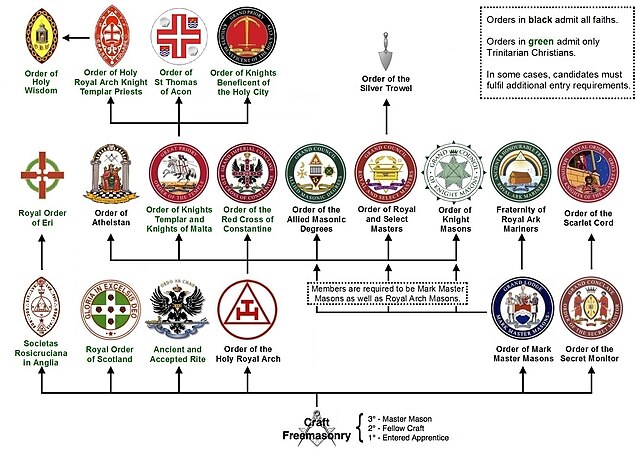There are many organisations and orders which form part of the widespread fraternity of Freemasonry, each having its own structure and terminology. Collectively these may be referred to as Masonic bodies, Masonic orders, Concordant bodies or appendant bodies of Freemasonry.
Diagram of two major masonic bodies in the United States
Organisation of Masonic appendant bodies in England and Wales
A Masonic lodge, often termed a private lodge or constituent lodge, is the basic organisational unit of Freemasonry. It is also commonly used as a term for a building in which such a unit meets. Every new lodge must be warranted or chartered by a Grand Lodge, but is subject to its direction only in enforcing the published constitution of the jurisdiction. By exception the three surviving lodges that formed the world's first known grand lodge in London have the unique privilege to operate as time immemorial, i.e., without such warrant; only one other lodge operates without a warrant – the Grand Stewards' Lodge in London, although it is not also entitled to the "time immemorial" title. A Freemason is generally entitled to visit any lodge in any jurisdiction in amity with his own. In some jurisdictions this privilege is restricted to Master Masons. He is first usually required to check, and certify, the regularity of the relationship of the Lodge – and be able to satisfy that Lodge of his regularity of membership. Freemasons gather together as a Lodge to work the three basic Degrees of Entered Apprentice, Fellowcraft, and Master Mason.

Masonic lodge in the City of Brussels, Belgium
Villa Blye in Paola, Malta, is a Masonic Temple where lodges of British and Irish Freemasons meet
Masonic lodge room in the Austrian Museum of Freemasonry, Schloss Rosenau, Austria
Masonic lodge room in Dublin, Ireland






